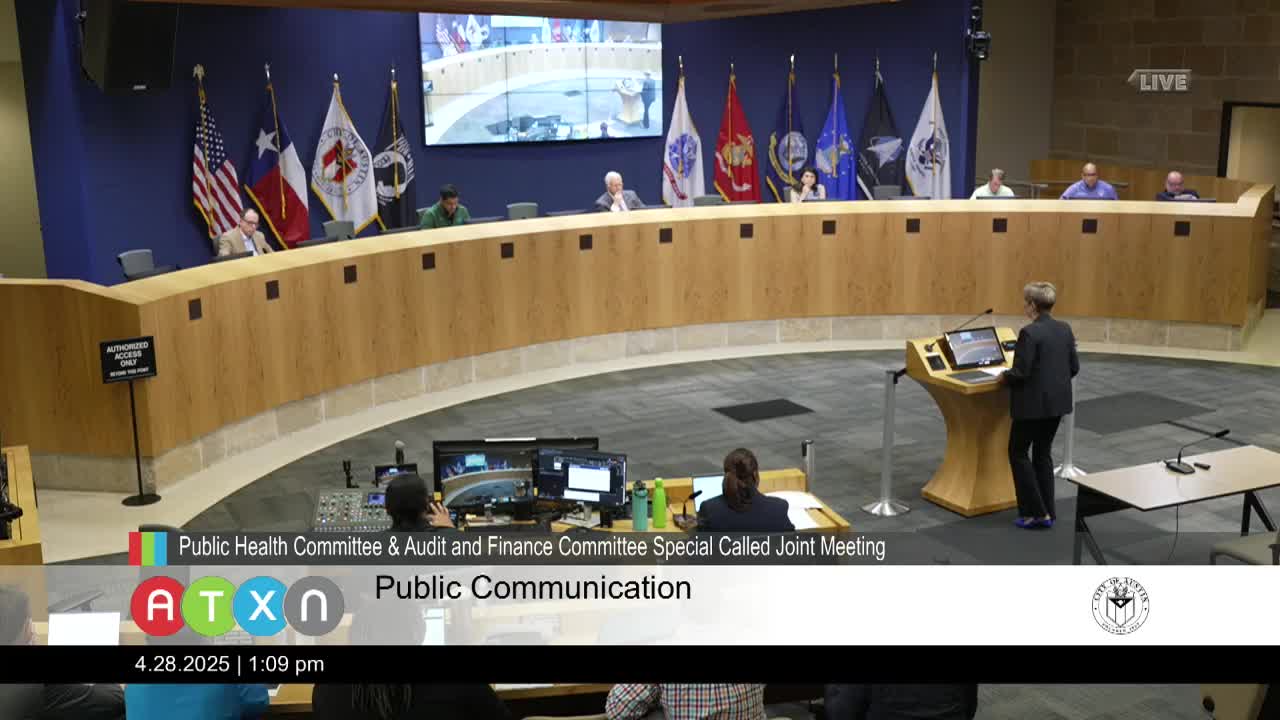Local outreach groups urge Austin to fund grassroots providers and include minority-led collaborations in budget
Get AI-powered insights, summaries, and transcripts
Subscribe
Summary
Multiple community providers and mutual-aid groups told the April 28 joint committee meeting that city funding and contracting have left frontline, minority-led organizations under-resourced despite heavy reliance on their services; speakers asked for stable contracts, seed funds for community shelters and better inclusion in budget planning.
A string of community providers and grass-roots organizations testified on April 28 that Austin must better resource small, often minority-led outreach groups that do day-to-day work getting people off the streets.
Jo Catherine Quinn, president and CEO of Caritas of Austin, told the committees the city needs a balanced system, uniform performance standards and predictable funding. "Performance-based contracting protects us, those we serve and the taxpayer," Quinn said, and she urged more financial involvement from local government, taxing authorities and the private sector to sustain services.
Chase Wright, executive director and founder of the Hungry Hill Foundation, described a newly formed collaboration of local direct-service groups and said many partners are not included in city contracts or the proposed budget. "We are currently here standing representing ourselves in this organ in this city right now, and it's been a problem," Wright said, adding that Hungry Hill serves about 700 individuals monthly and that the collaboration is largely unfunded.
An unnamed founder and CEO from We Can Now said the group has diverted more than 80 people from the streets into stable housing since 2023 and estimated those diversions saved the city "over $25,000 per person" and "our program here at We Can Now has already saved the city $2,000,000." We Can Now's representative asked the council to include grassroots providers in budget planning and to expand access to diversion funding.
Chris Baker of The Other Ones Foundation and Mel LeBlanc of Vocal Texas also emphasized inclusion for organizations with lived experience in leadership and the need for stable funding rather than temporary grants. Several speakers urged the city to fund street outreach and workforce-development programs and to prioritize community groups that operate in places city departments or larger nonprofits do not routinely reach.
Speakers' main ask was predictable, ongoing funding and more explicit inclusion of small, local providers in contracts, shelter planning and outreach efforts. Several requested a city-administered seed fund (the staff presentation later referenced a $2 million seed fund idea) that could help community groups stand up shelter beds or stabilize operations until longer-term funding is secured.
Ending: The public-comment block underscored provider support for staff's outreach and shelter recommendations but highlighted a gap between city-contracted services and the smaller providers who said they carry frontline costs. Council members and staff acknowledged those concerns and cited staff recommendations that include continued outreach contracting, a $2 million community-shelter seed fund and further coordination with philanthropic partners.
